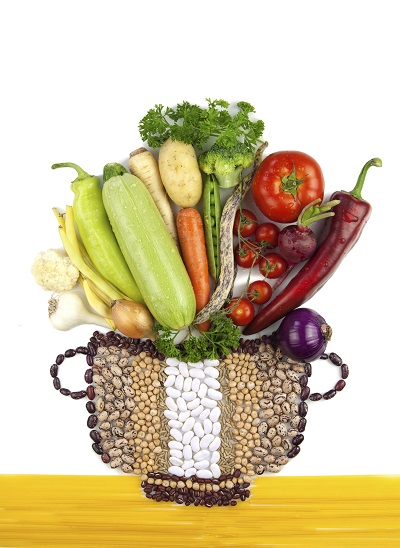A guest post by Laurel Sindewald
When we’re early in recovery from alcohol addiction, it’s important to remember to be kind to our bodies. We’re used to getting half of our daily calories from alcohol. Alcohol turns to sugar in the body. Processed sugars make our blood sugar levels spike and drop, and when our blood sugar drops, the craving comes stronger than ever. To use nutrition to help ourselves stay sober, sugar is the first food we need to stay away from.
 Rather than eating a few large meals a day, we can keep ourselves stable with multiple smaller meals and snacks in between. Nuts and granola can make good snacks, with plenty of protein and carbs to keep us fueled through the day.
Rather than eating a few large meals a day, we can keep ourselves stable with multiple smaller meals and snacks in between. Nuts and granola can make good snacks, with plenty of protein and carbs to keep us fueled through the day.
A diet rich in complex carbohydrates will help stabilize our blood sugar so that we can focus on building our new lives. These are whole grains, beans, and vegetables, many of which also have protein and vitamins. When we go to the store, these are some helpful complex carbohydrates we can look for:
- Quinoa is a grain high in protein and good carbs, and can be found at grocery stores with pre-mixed spices for excellent flavor. It only takes about 15 minutes to cook and most boxes have various recipes to try. Consider making quinoa with fish, like salmon or tilapia, and a hearty pot of southern greens.
- Lentils, of whatever color, are another fantastic carb. Lentil soup with carrots, garlic, and celery is heartwarming on a cold day, and helps keep one feeling stable and strong.
- Split Peas also make a wonderful soup with a robust flavor. Home-made split pea soup only takes about thirty minutes to prepare. Add ham or cooked bacon to this winter favorite.
- Barley and Rice are great in soups, cooked with spices as a side, or even cooked and cooled for a salad.
- Black Beans, Kidney Beans, Black Eyed Peas, or any bean is your best friend for quick and sustaining meals. Whether it be a delicious chili or black bean soup, beans are full of the kind of carbs and protein you need. Stay away from baked beans, which have sugar in them, but pinto beans combine well with fish and Mexican dishes.
- Collard, Mustard, Turnip Greens, Spinach, and Kale are full of vitamins in addition to those complex carbohydrates.
- Other Vegetables: Carrots, Brussel Sprouts, Asparagus, Broccoli
- Whole Wheat Pastas and Bread
Sometimes it can be hard to find time to cook, but fast food is full of processed sugars and carbs which can bring on cravings. The additives in processed foods can tax the liver further. Try some of these simple dinners:
- Baked or fried salmon or tilapia, a side of quinoa or couscous, and steamed broccoli. (Mix and match different vegetables or grains as sides.)
- Lentil soup with slices of buttered whole grain bread.
- Black bean, kidney bean, and ground beef chili with a side salad of baby spinach with walnuts and cranberries.
- Split pea soup, containing ham or bacon, potatoes, carrots, and celery.
- Spaghetti or ravioli with sautéed onions, mushrooms, and ground turkey, beef, or sausage.
- Baked chicken and asparagus, steamed Brussels sprouts, and a side of wild rice.
- Bell peppers, onions, chicken, and garlic sautéed with fajita spices and served in tortillas.
- Tacos with ground beef, lettuce, tomatoes, sour cream, and salsa.
Researched and written by Laurel Sindewald
Nutrition Supports Recovery is a clinical version of this post with links to cited research.
The content of this post is for informational purposes only and is not a substitute for medical or professional advice. Consult a qualified health care professional for personalized medical and professional advice.
